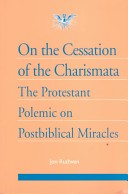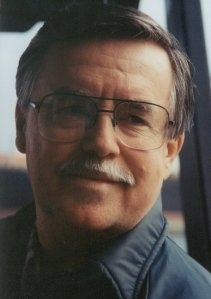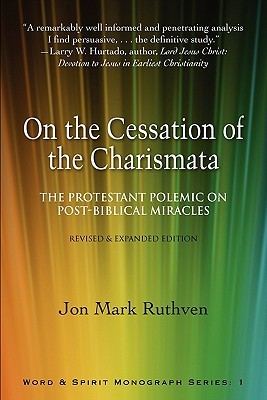Jon Ruthven: On the Cessation of the Charismata, reviewed by Amos Yong
 Jon Ruthven, On the Cessation of the Charismata: The Protestant Polemic on Postbiblical Miracles, Journal of Pentecostal Theology Supplement Series 3 (Sheffield: Sheffield Academic Press, 1993 and 1997), 271 pages.
Jon Ruthven, On the Cessation of the Charismata: The Protestant Polemic on Postbiblical Miracles, Journal of Pentecostal Theology Supplement Series 3 (Sheffield: Sheffield Academic Press, 1993 and 1997), 271 pages.
Those who are involved in friendly debates with cessationists should seriously consider this book as a gift in order to further conversation on the topic. Let me briefly identify the book’s highlights.
First, Ruthven provides a valuable overview of the history of cessationism, beginning with Jewish sect of the Pharisees in the period of the early church and continuing through the Reformers’ debate against the Radical Reformation and Roman Catholicism, Hume’s criticism of all supernatural miracles, and the emergence of Deism.
Second, against this background, the cessationist polemic of Princeton theologian, Benjamin B. Warfield (1855-1921), is critically assessed. An outstanding example of contextualizing a theologian’s ideas, Ruthven’s discussion not only establishes the internal inconsistency of Warfield’s concept of miracle in the latter’s Counterfeit Miracles (1918), but also reveals a clear irony in his methodology. In his zeal to uphold the authority of Scripture, Warfield actually misread the biblical data on the charismata even according to his own hermeneutical principles. Further, his a priori cessationism led him to discredit miracles documented in the history of Christianity by applying to this record the same historical method that Hume and the deists used to undermine biblical miracles themselves. In short, Ruthven demonstrates that Warfield’s ‘bibliolatry’ (my term) actually blinded him to the continuities manifest between Scripture and ongoing biblical revelation, thus motivating his polemic.
Third, Ruthven challenges the ‘evidentialist’ doctrine of miracles and the charismata that claims these served only to accredit the foundations of Christian faith in the first century. He provides us with a thorough exegetical investigation of all texts related to the function and duration of the charismata, and argues convincingly the thesis that they are edificatory for the Church. The charismata concretely express and make relevant the Gospel, and equip the Church for mission. If in fact the Church’s mission continues until the end of this age, then cessationism is wrong.
Finally, Ruthven provides hints for extending the biblical theology of the charismata that he has developed into a systematic theology of charismata. These involve other areas of theological study such as pneumatology, eschatology and the Kingdom of God, ecclesiology and theology of ministry, and the doctrines of grace and revelation. The book includes an exhaustive bibliography that researchers on cessationism cannot afford to ignore.
Ruthven’s writing style is lucid and his argument persuasive. The book is informative for scholar, pastor and layperson alike. I highly recommend it.
Reviewed by Amos Yong
Category: Spirit, Spring 2000




